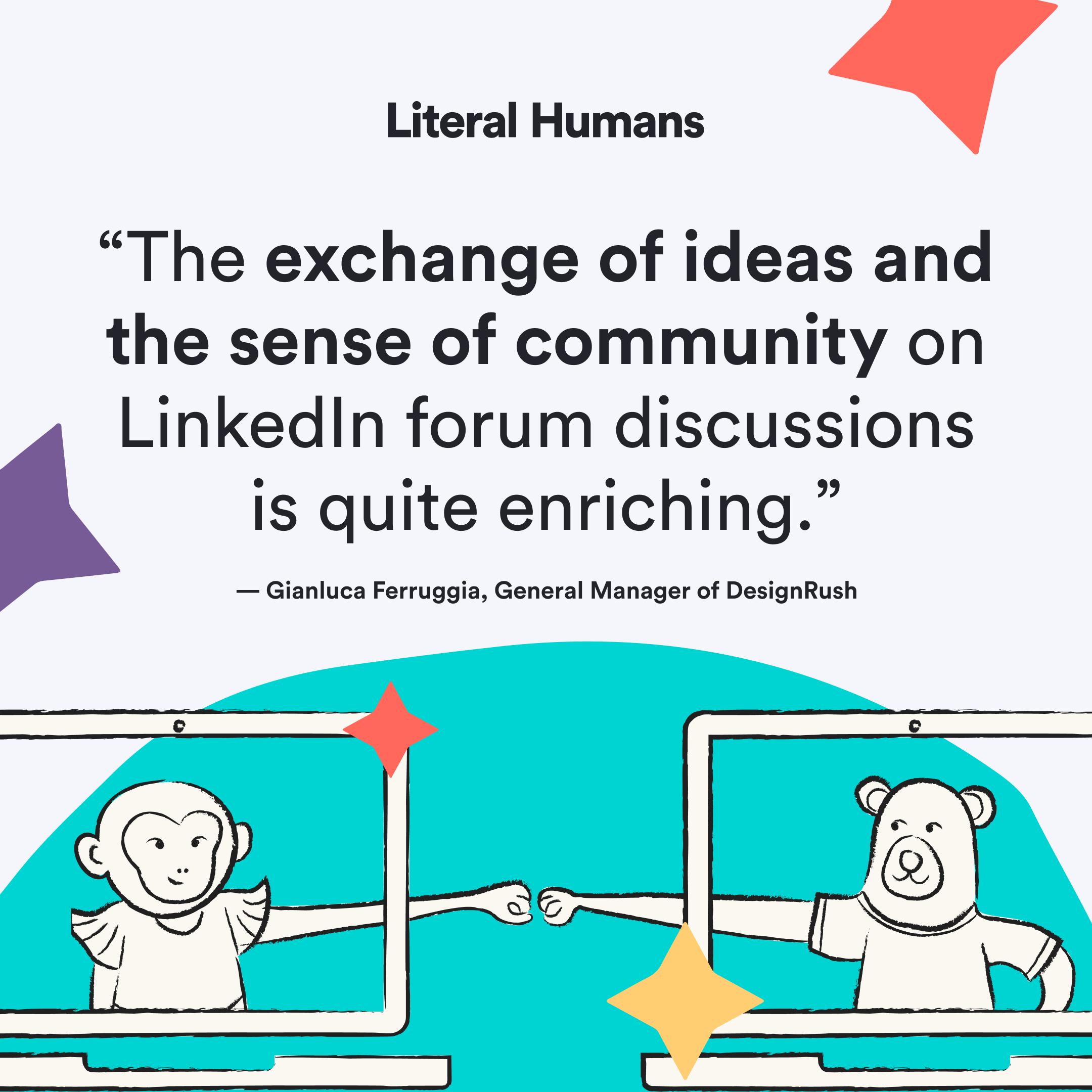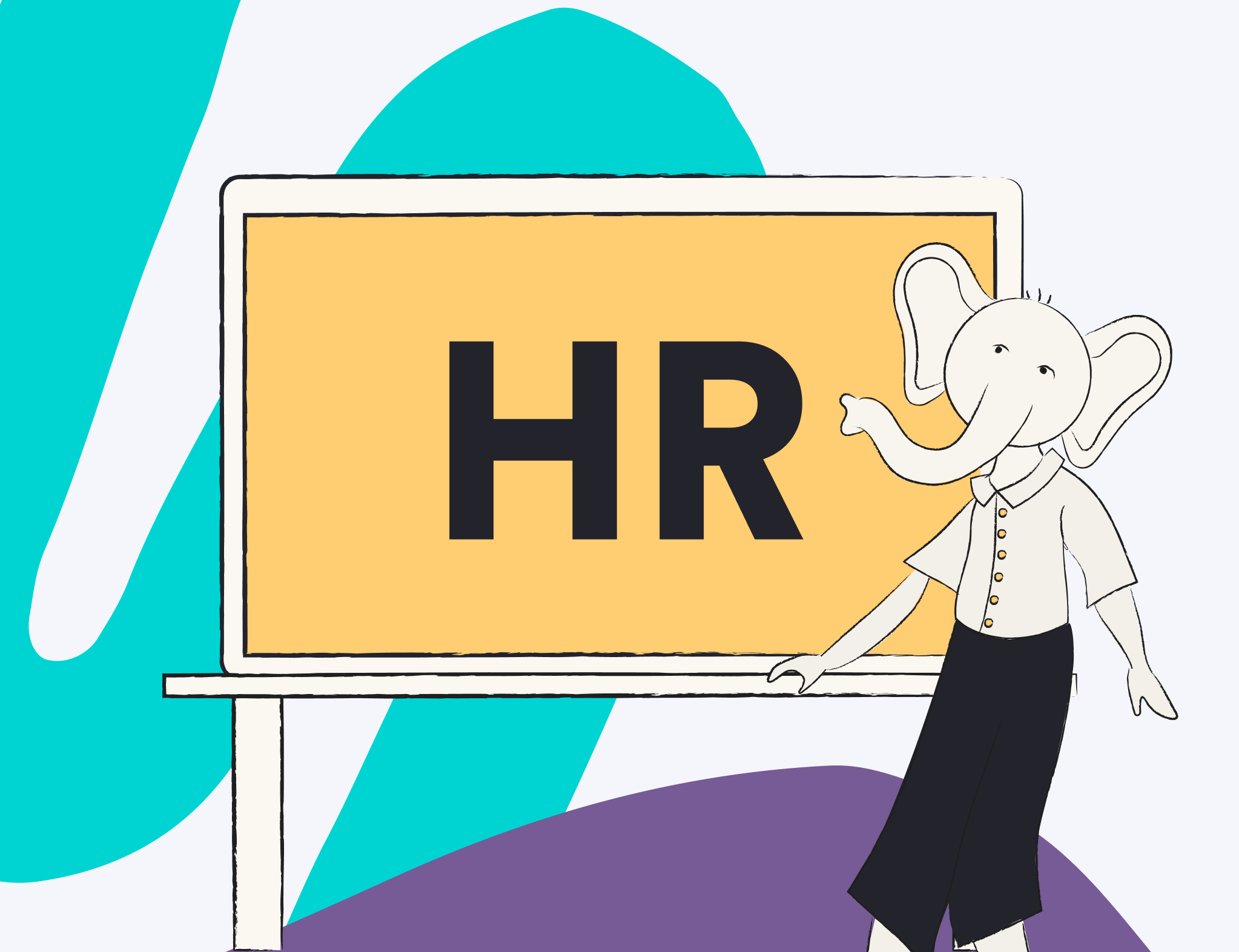How to market your SaaS platform to HR managers
Marketing to HR managers is sometimes considered the most difficult audience to sell to. After all, the human resources department is often too busy to read through endless pages of sales collateral or to even research into the various options available to them. And, more importantly, they often don’t have the purchasing power required to make decisions about the software they’re using across the business.
So, how do you take your SaaS platform and put it in front of the right audience naturally, so they’ll be more willing to stop and listen? We went out and asked real-life HR professionals what their preferred method of marketing is, and where they find information about the developments of their industries, so you can create a strategy that your audience will respond to.
Reach them with their preferred content formats
As mentioned above, HR professionals are simply too busy to sift through endless amounts of information in various content formats. In fact, they often find it overwhelming, which makes it difficult to identify and consume valuable information.
“A lot of HR people are very busy, with a lot of emotional baggage,” Lizzie Boyd, Director at The Pod HR told us.
There’s just no point in creating great, concise content and publishing it in a way that your audience won’t react to it. Instead, streamline your efforts and focus on where your audience already spends its time. Remember, not everyone will be searching for your products on Google, and they may well come across your services out in the wild, so it’s important to consider a variety of avenues.
Webinars
Webinars are common choices for professionals — in fact, 91% of professionals say webinars are their preferred content type — and the HR industry is no different. Zoë Ogden, People Director at Impression said: “For webinars, I always would be quite keen to join them. I find them to be the most insightful sometimes because of the different panel speakers and just hearing discussions from other people.”
“What I liked about pieces that we were sent from our employment lawyers was that it was really digestible — it called out pretty much exactly what we would need to do to be compliant, it was just in a more bite-sized way.”
While webinars are generally considered a learning opportunity, it’s also a great way to get your brand out there. Host a webinar with industry experts in the HR field and ask questions that really dig deep into the subject.
Gianluca Ferruggia, the general manager of B2B marketplace DesignRush, said about webinars: “They offer an interactive element that goes beyond traditional text.” Get your panel talking about the various aspects of their job to keep listeners engaged, before allowing your audience to ask questions.

Podcasts
When speaking about preferred content formats, Lizzie told us: “I’d prefer podcasts. I don’t tend to read blog posts just because there’s so much out there at the moment.”
They continued: “I’m definitely an audio learner. I tend to listen to podcasts when I’m on the move somewhere, and I’ll be able to fully concentrate on what’s being said. I’m not distracted. If it’s a video, I might be tempted to look at my phone or do something else.”
Irene Graham, co-founder of Spylix, added: “I much rather listen to podcasts. I can easily consume the information from them without being confined to a desk or screen, because they are convenient to listen to while on the go.”

Podcasts can be a wise investment format — you’re able to post episodes across multiple platforms once it’s been recorded, in order to maximize your reach and listenership. And, if you film the episodes, you can share them across other platforms, including short TikTok clips and Instagram Reels. Podcasts are also incredibly convenient, and can be taken in even when your audience isn’t at their desk, or even at work.
Blogs
Searching online is one of the first things any researcher will do. If a HR professional is looking for a new software, they may well be Googling it to find out more. And you should be visible when they do. Crafting blogs to sit on your website allows you to reach those searching for your services, while giving you the opportunity to increase your brand awareness and promote your product.
Blogs also provide the reader with the opportunity to research at their own pace. Zoë Ogden told us: “I would be more inclined to read blog posts, just because I can do that in my own time and dip in and out of that.”
When creating blog content, it’s a good idea to target themes and topics that your audience is most interested in. You can do this with SEO-led keyword research, to figure out exactly what’s being searched for, or you can simply ask your audience what they want to see more of, whether that’s automation and AI or employee retention tactics.
Know where they hang out
As with any marketing strategy, you need to know where your audience is before you start creating content. After all, there’s no use posting on TikTok if your key clients spend more time on LinkedIn.
Equally, doing some research behind where your audience is spending their time will allow you to create tailored pieces of content based on what your audience is discussing.

LinkedIn is a great tool for any professional. It allows you to connect with industry peers, get involved with discussions and push your branding out there. The social platform is used by HR professionals for networking, learning and development and even researching.
“It is helpful to see what’s going on for other businesses and when people post thought leadership pieces,” Zoë told us.
Similarly, Gianluca Ferruggia’s go-to platform is LinkedIn, to engage with professional content and discussions related to HR technology. They explained: “On multiple occasions, I have engaged in LinkedIn forum discussions. The exchange of ideas and the sense of community is quite enriching.
“I do follow several HR tech companies on LinkedIn. Their regular updates on product advancements and industry trends are quite valuable.”
However, there is a messier side to LinkedIn — the sheer volume of content that is posted can be very overwhelming. In fact, 2 million posts, articles and videos are published every day on LinkedIn, so you run the risk of your posts being lost in the ether. However, Zoë explains that “if you can get yourself through all of the drivel that’s also within LinkedIn, then sometimes there’s a nugget of information that’s quite useful or quite validating”.
With this in mind, it’s worth adding to the conversation with something unique and insightful as opposed to repeating the same information that’s already there. Create posts that’s reactive to the industry for your followers to see and (hopefully) engage with, while investing in paid ads to ensure your products are reaching the right audience.

HR-specific forums and communities
Online forums are perhaps one of the most useful parts of the internet. Finding active forums related to HR is where your audience is spending their time and actually engaging with discussions and posts about your industry. The Human Resources subreddit, for example, has 129,000 users subscribed, which is 129,000 people you could be marketing to.
While you aren’t allowed to promote your business within these forums (they’re generally quite strict on keeping the posts to conversations only) you can look into investing in paid advertising being published across these forums.
These forums are also a great way to dig into what sorts of themes are trending, allowing you to create a content calendar based around the topics your audience is interested in and talking about.
Slack channels for HR professionals
Slack isn’t just a messaging platform to keep your teams connected. It can also be utilized as a powerful networking tool — one that connects you to industry leaders, authoritative figures and decision makers. There are plenty of HR-specific Slack channels that you can join and make yourself known in.
Org Designers, for example, has a dedicated #models-and-tools channel to discuss how to streamline processes within an organization. HRtoHR, on the other hand, was created specifically for HR professionals who were tired of the formalities of in-person events. Instead, this channel is where HR professionals can come together to talk about the real aspects of the industry, share advice and tips, as well as spend some (virtual) time socializing with each other. Meanwhile, Hacking HR is great for discussing technology in the HR industry.
Joining these Slack channels is not only a great way to (subtly) mention your product, but is also ideal for searching for pain points within the industry, providing invaluable market research for free. You can then take these and incorporate solutions into software updates and new products!
Events and conferences

The traditional way of networking with your audience is through hosting and attending events and conferences. While ticket costs for these events can be on the pricey side, being able to meet your audience face to face and deliver your sales pitch is priceless. Consider setting up a booth to give you the space needed for clear branding to really make your mark and encourage audiences to visit you. You could even invest in free merch to give away if you really want people to come and see you and learn more about your software.
HR events take place on a global scale so, if you are wanting to attend, it’s worth taking travel and ticket costs into account.
Don’t preach or patronize! Stay authentic and vulnerable
HR professionals appreciate authenticity and vulnerability when dealing with new businesses and content. It helps to build trust, and transparency can even help you to resonate with their real-world experiences. “I find that it makes me disengage when it’s preachy,” says Zoë Ogden.
“It’s hard to describe but there’s definitely instances where I’ll read something and it’ll make me want to roll my eyes because I just find it either preachy or not in tune with the reality of how things work in a business. Or, I suppose, a bit evangelical.”
Stay real and authentic across all your messaging in order to connect with your audience. Corporate or standardized content runs the risk of alienating your audience — remember: they’re people, too.
Similarly, you don’t want to scare your audience into buying your products through hyperbolic claims. Lizzie Boyd explains: “If I’m approached and there’s a patronizing tone to the messaging or a scare tactic, for example, your business will fail if you don’t implement X, Y or Z, I find that very cheap, and I wouldn’t subscribe or buy that product, because I think those companies underestimate their audience.”
Customers aren’t easily fooled by cheap scare tactics anymore and, more importantly, can respond better to genuine marketing efforts, as opposed to inauthentic, automated attempts.
Lizzie continues: “I think personalized messaging is great when it is actually personal, but I think, as humans, it’s easy to identify when something isn’t actually authentic. So, if your message is clear and good, there’s no reason why people would be less inclined to buy that product. In fact, I’m less inclined to buy a product when they’ve tried to appear like they were approaching me personally.”
Need more marketing support for your HR Tech product?
Hopefully, we’ve made it a bit clearer for you to understand how best to market your HR tech or SaaS product. However, if you’re still a little skeptical, or simply looking for some support, get in touch with our team.
At Literal Humans, we’ve got experience in SaaS and B2B marketing, and have helped many businesses grow. We previously helped Oyster more than quadruple their organic search traffic, while our work with Progression resulted in their organic search traffic doubling.
If you’re interested in finding out more about how we can help you, book a strategy call or send us an email — our team is more than happy to help!










